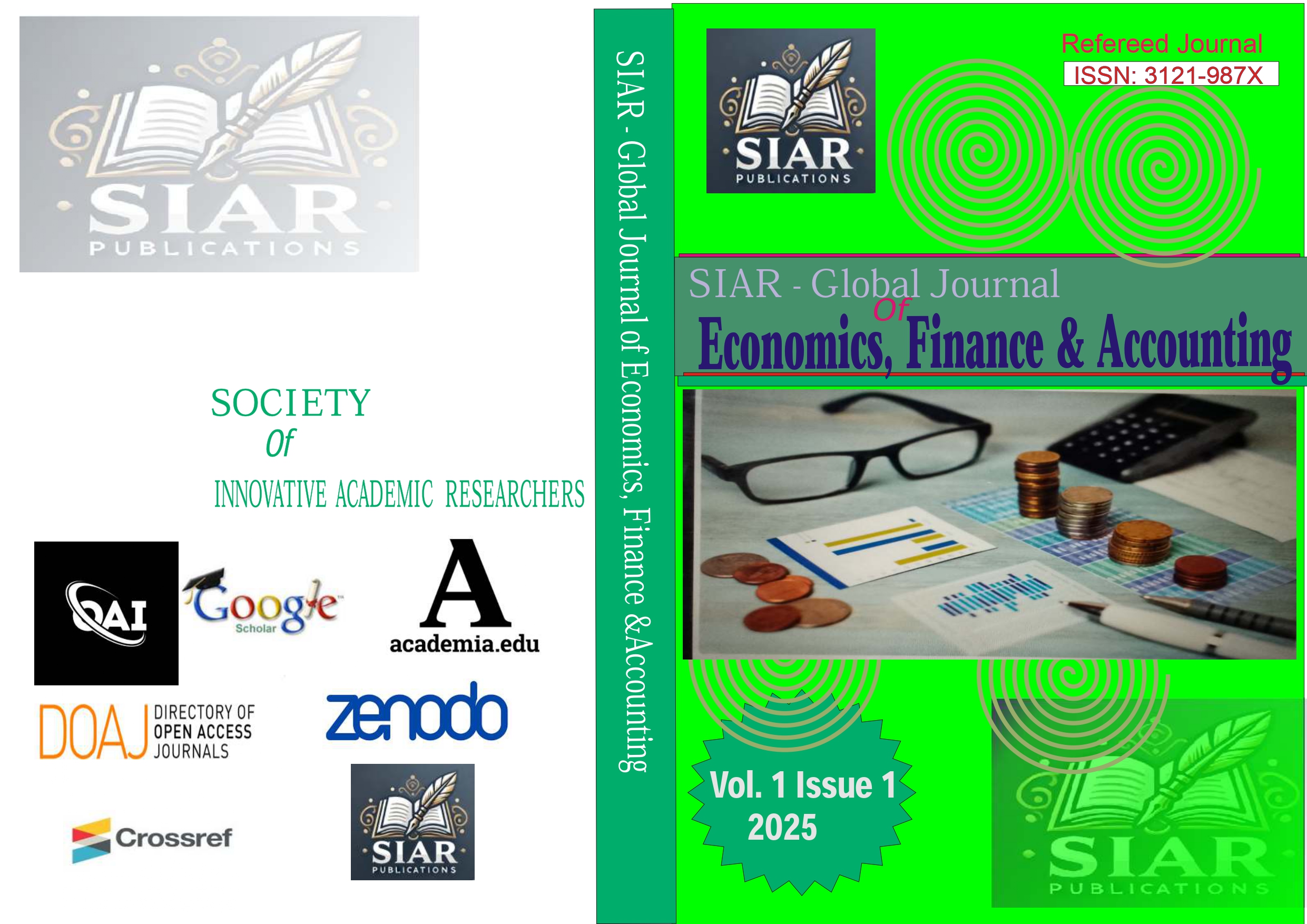Nigeria’s Debt Conundrum: An Appraisal of Debt Management Strategies and their Impact on Economic Growth

Keywords
Debt Management, Debt Servicing, Economic Growth, External Debt, Institutional Quality, Nigeria
Full Article
Download Full Article (PDF)How to Cite
Mahmood Omeiza Adeiza & Selim Mayowa Onawola (2025). Nigeria’s Debt Conundrum: An Appraisal of Debt Management Strategies and their Impact on Economic Growth. SIAR-Global Journal of Economics, Finance & Accounting, Vol. 1, No. 1. DOI: 10.5281/zenodo.17672392